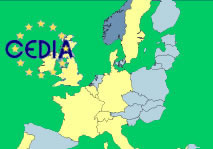


|
Kofi
Annan warns financial crisis no excuse for inaction Former UN Secretary General Kofi Annan has warned that the global financial crisis cannot be used as “an excuse for inaction” in the worsening battle against “wrenching hunger” across the developing world. Speaking in Dublin at a major international conference hosted by Concern Worldwide, Mr Annan urged political leaders to end a situation where nearly one billion of the world’s population do not have enough food to eat on a day-to-day basis. More than 200 Irish and international policy-makers and influential figures drawn from government, business, academia and major NGOs are attending the conference at the Royal Hospital in Kilmainham, Dublin.
Mr Annan is calling governments to task over their slow response
to the problem of global hunger in comparison to the swift reaction
to the current turmoil in the financial system. “The financial crisis cannot be an excuse for inaction. We must maintain our resolve. We can end hunger and poverty. Doing so is critical to Africa and to a healthy and resilient global food system.”
Investment in African agriculture “Agricultural development is an engine of economic growth for low income countries where most people live in rural communities and farm. The global food crisis has prompted governments from Beijing to Berlin to re-invest in agriculture, and find ways to support their farmers. Africa must do the same.” “It will require a coherent and coordinated response by governments, donors and multilateral organisations. It will require coordination across different sectors of the economy, and partnerships between the public and private sectors.” “On both national and international levels, we must reverse the policies of abandonment. We must help Africa’s smallholder farmers to attain what has eluded them for so long: fully productive and profitable farms. Africa can feed itself and rejoin the league of agriculture-exporting nations. The conference is also being addressed by a number of other leading international experts in the field. |